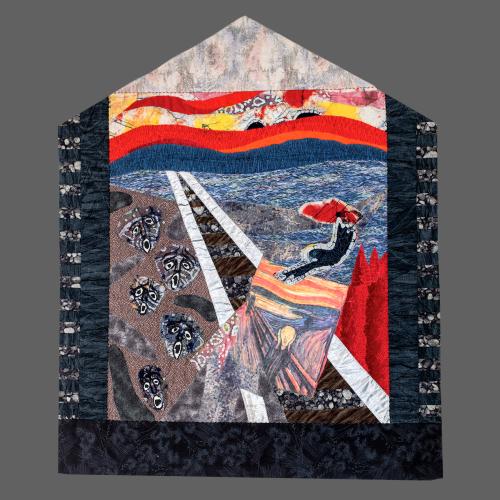
Estelle Kessler Yarinsky
The A Train, 1995
Cotton, polyester, metallic
37.5" x 31"
Collections of the New York State Museum
In August 1944, 982 refugees from war-torn Europe arrived at Fort Ontario in Oswego, New York. The vast majority of them were Jews. Even as the Nazis terrorized and murdered more than 11 million people, the men, women, and children received at Fort Ontario that summer would be the only refugees to whom the United States officially offered safe haven during the Holocaust.
Upon arrival at the fort, the refugees discovered that it was surrounded by tall chain-link fence topped with barbed wire—shockingly reminiscent of the horrors of the concentration camps they escaped. Featuring a section of the fence from Fort Ontario, the permanent exhibition Holocaust to Haven tells the story of those interned there for eighteen months at the end of World War II.
As a companion to Holocaust to Haven, the State Museum is honored to present works by Brooklyn-born textile artist Estelle Kessler Yarinsky. Three of the artist’s works will be exhibited on rotation adjacent to Holocaust to Haven throughout the winter and spring of 2024.
Estelle Kessler Yarinsky
I Love Paris When It Sizzles, 1995
Cotton, polyester, metallic
33" x 43.5"
Collections of the New York State Museum
Estelle Kessler Yarinsky
The A Train, 1995
Cotton, polyester, metallic
37.5" x 31"
Collections of the New York State Museum
Estelle Kessler Yarinsky
Not All Fabrics Are Created Equal, 1995
Cotton, polyester, metallic
27" x 32.5"
Collections of the New York State Museum